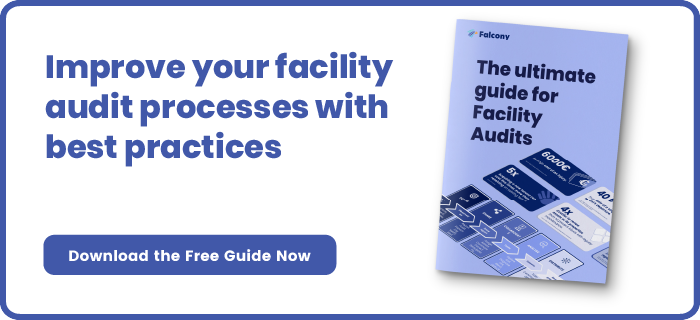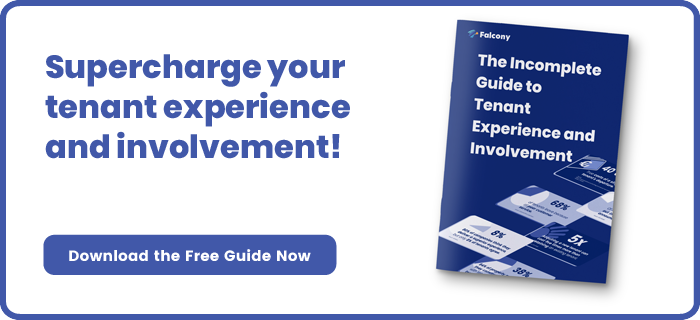8 Most Common Safety Incidents in Real Estate and Property Management
In the realm of real estate and property management, safety is not merely a regulatory obligation but a fundamental aspect of providing a secure and comfortable environment for tenants and staff alike.
Given the complexity of property management, the range of potential safety issues is broad. Proactively identifying and addressing these concerns can help mitigate risks and foster a safer living and working environment. Below are eight of the most common safety incidents in the industry, along with detailed strategies to address them.
Slip, Trip, and Fall Accidents
Slip, trip, and fall incidents are among the most frequent safety concerns in property management. Such accidents can result from a variety of hazards including uneven flooring, loose carpets, and wet or icy surfaces. Common areas like lobbies, staircases, and hallways are particularly vulnerable.
To mitigate these risks, property managers should implement a rigorous inspection schedule to identify and rectify potential hazards. Flooring should be maintained in good condition, with prompt repairs for any damage. Carpets should be secured to prevent slipping, and all surfaces should be kept dry and clean. Additionally, installing slip-resistant flooring in high-risk areas and using proper signage to indicate wet conditions can further prevent accidents. Staff should receive training on recognising and addressing potential trip hazards, and a system should be in place for tenants to report any safety concerns.
Electrical Hazards
Electrical hazards, such as faulty wiring, overloaded circuits, and malfunctioning appliances, pose significant risks, including electrical shocks and fires. These hazards can arise from both outdated infrastructure and improper usage.
To ensure electrical safety, regular inspections by qualified electricians are essential. Compliance with electrical codes and standards helps to identify and rectify potential issues before they escalate. Property managers should establish a routine maintenance schedule for all electrical systems, including wiring, outlets, and circuit breakers. Education is also key—tenants should be informed about the risks of overloading outlets and the proper use of extension cords. Encouraging tenants to report any electrical issues promptly can also help in addressing problems before they become serious.
Security Incidents
Security is a crucial aspect of property management, encompassing risks such as burglary, vandalism, and personal safety threats. Properties without adequate security measures are particularly vulnerable.
To enhance security, property managers should invest in comprehensive security systems, including surveillance cameras, secure entry points, and alarm systems. Regular maintenance and updates to these systems are necessary to ensure their effectiveness. Security measures should be complemented by effective protocols for handling security breaches and suspicious activities. Informing tenants about security practices, such as locking doors and windows, and encouraging them to report any concerns can also bolster overall safety. Additionally, employing security personnel for regular patrols in high-risk areas can further enhance the security of the property.
Fire Safety Issues
Fire safety is a critical concern in property management, as inadequate fire prevention measures can lead to severe consequences. Common fire hazards include faulty fire alarms, obstructed fire exits, and the presence of flammable materials.
To address fire safety concerns, property managers should conduct regular fire safety inspections and ensure that fire alarms, sprinklers, and extinguishers are in working order. Clear signage and unobstructed access to fire exits are essential for safe evacuation. Conducting regular fire drills with tenants and staff ensures that everyone is familiar with evacuation procedures. Compliance with local fire safety regulations and building codes is crucial, and property managers should stay informed about any changes to these regulations. Providing tenants with information on fire safety practices and emergency contact numbers is also an important preventative measure.
Hazardous Materials
Exposure to hazardous materials, such as asbestos, mould, and lead, can have serious health implications. These materials are often found in older buildings or properties undergoing renovations.
Proper management of hazardous materials involves conducting thorough inspections and risk assessments to identify their presence. If hazardous materials are found, remediation should be handled by certified professionals who follow strict safety protocols. Property managers should ensure that any work involving hazardous materials complies with relevant health and safety regulations. Informing tenants about the potential presence of hazardous materials and the measures being taken to address them can help in managing their concerns and ensuring their safety.
Violence and Aggression
Violence or aggression, whether from tenants, visitors, or external parties, can create an unsafe environment. Incidents may range from verbal altercations to physical confrontations.
To manage these risks, property managers should establish clear protocols for dealing with aggressive behaviour, including conflict resolution strategies and communication techniques. Training for staff on recognising the signs of potential aggression and how to respond appropriately is vital. Implementing a reporting system for incidents and providing support resources for both staff and tenants can help address and prevent future occurrences. Ensuring that security measures are in place, such as emergency call buttons or security personnel, can also enhance safety in high-risk situations.
Vehicle Accidents
In properties with parking facilities, vehicle accidents are a common concern. Issues such as poorly designed parking layouts, inadequate signage, and insufficient lighting can contribute to these incidents.
To minimise vehicle accidents, property managers should ensure that parking areas are well-designed, with clear markings and adequate lighting. Regular maintenance of these areas, including repairing any damage to surfaces or signage, is crucial. Implementing speed bumps and other traffic management measures can help control vehicle speeds and reduce the likelihood of accidents. Providing tenants with clear guidelines for parking and driving within the property can also contribute to a safer environment.
Inadequate Lighting
Inadequate lighting in both interior and exterior areas of a property can lead to accidents and contribute to security issues. Poorly lit areas can increase the risk of trips and falls, as well as create opportunities for criminal activity.
To address lighting concerns, property managers should conduct regular assessments of lighting levels throughout the property. Upgrading lighting systems to ensure adequate illumination in key areas, such as staircases, hallways, and parking lots, is essential. Maintenance of existing lighting fixtures, including prompt replacement of burnt-out bulbs, is also important. Installing motion-sensor lights in less-frequented areas can enhance safety by ensuring that lighting is only used when needed. Educating tenants about the importance of lighting and encouraging them to report any issues can further improve safety.
Conclusion
Safety in the real estate and property management industry involves a comprehensive approach to identifying and addressing various risks. By implementing proactive measures and maintaining vigilance, property managers can significantly reduce the likelihood of safety incidents. Regular inspections, adherence to safety regulations, and effective communication with tenants and staff are crucial in fostering a safe and secure environment. Prioritising safety not only protects individuals but also enhances the overall efficiency and reputation of property management operations.
If you're looking to implement a mobile tool for your audits, we've got you covered. Falcony | Audit is easy-to-use, fast to set up, has customisable workflows, vast integration possibilities and more. Contact us for more information.
We are building the world's first operational involvement platform. Our mission is to make the process of finding, sharing, fixing and learning from issues and observations as easy as thinking about them and as rewarding as being remembered for them.
By doing this, we are making work more meaningful for all parties involved.
More information at falcony.io.

Related posts
7 Typical Unsafe Conditions in Real Estate and Property Management
In the realm of real estate and property management, ensuring the safety and well-being of tenants...
15 Types of Safety Incidents in Manufacturing Industry
The manufacturing industry is critical to the economy, providing a vast array of goods and...
10 Common Safety Near Misses in Facilities Management
Facilities management is integral to ensuring the smooth operation of buildings and structures,...






